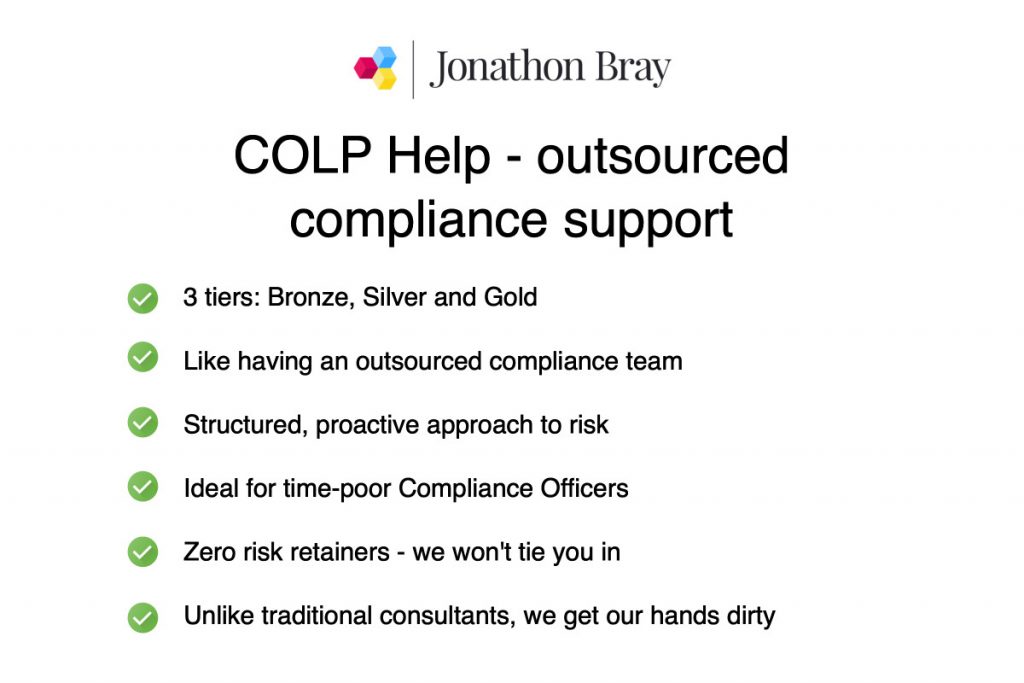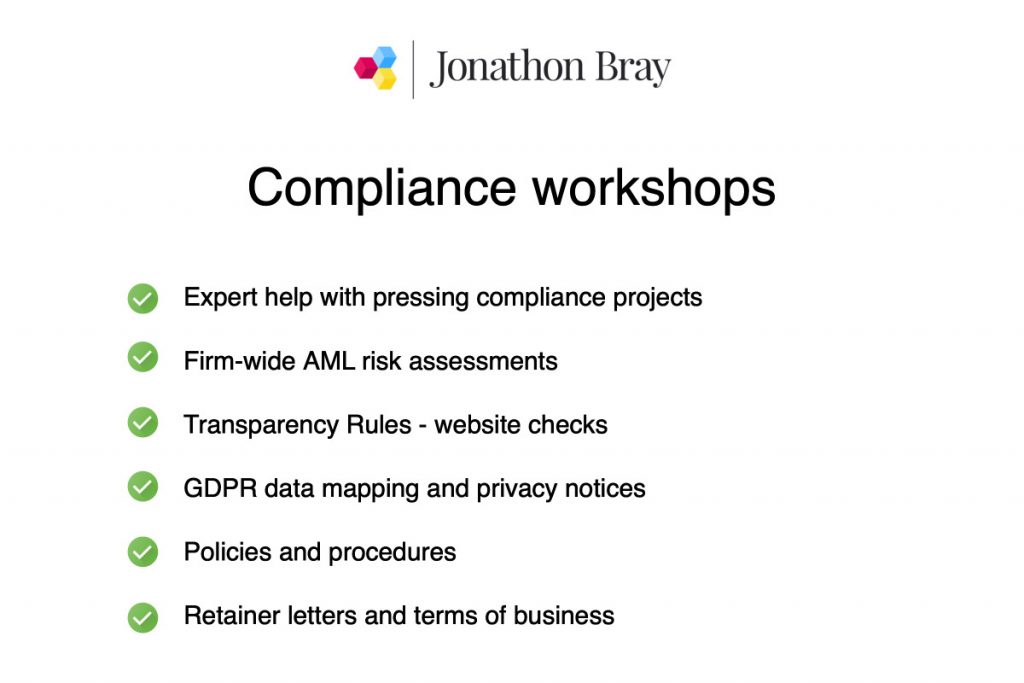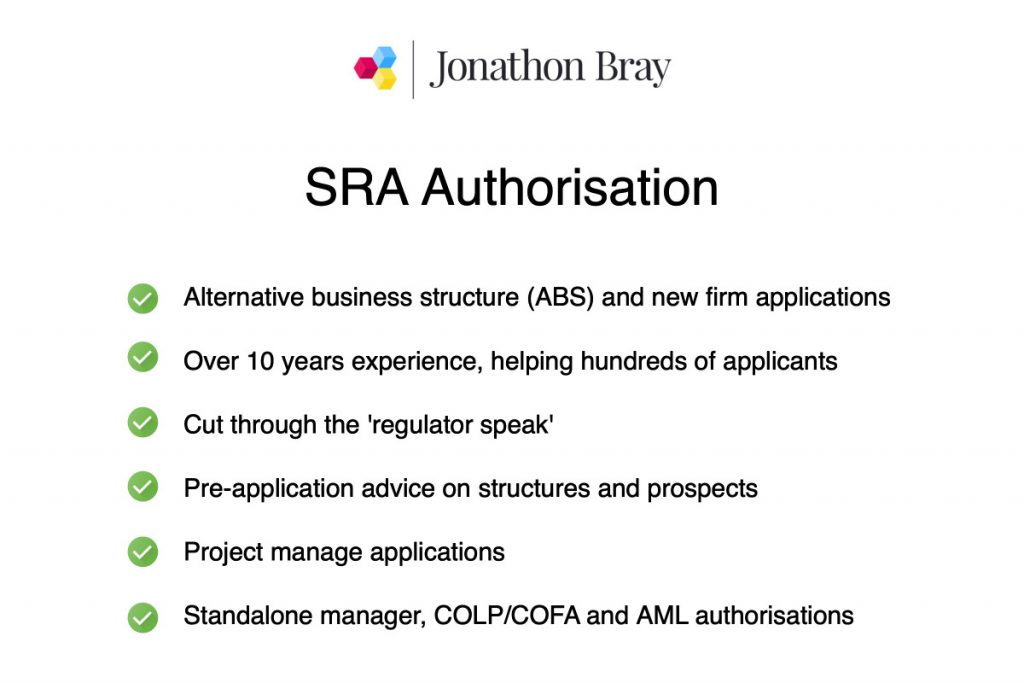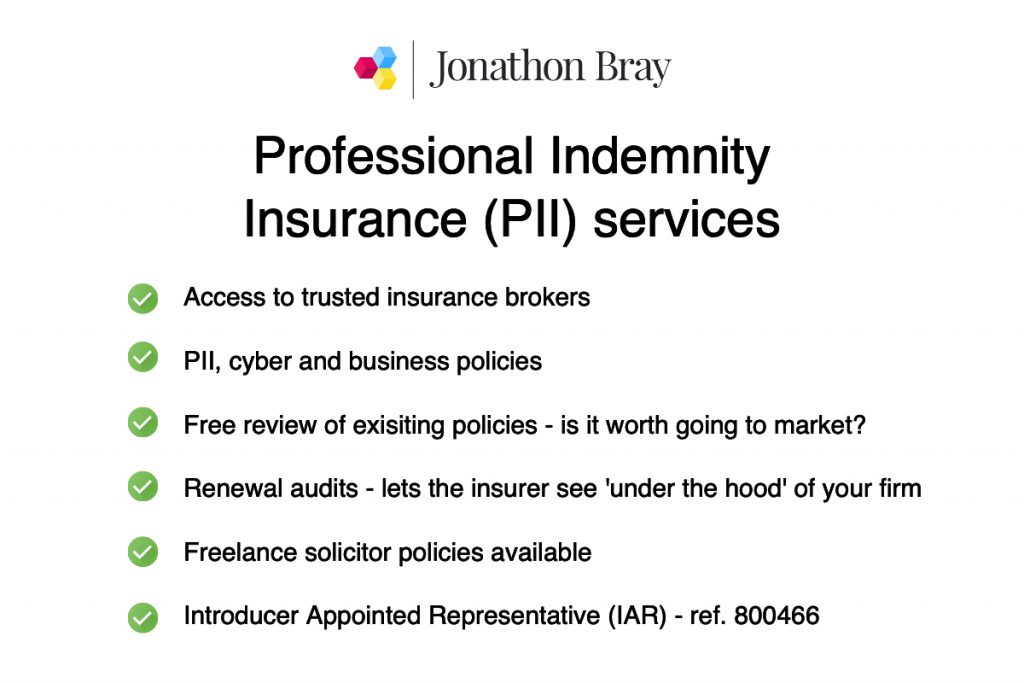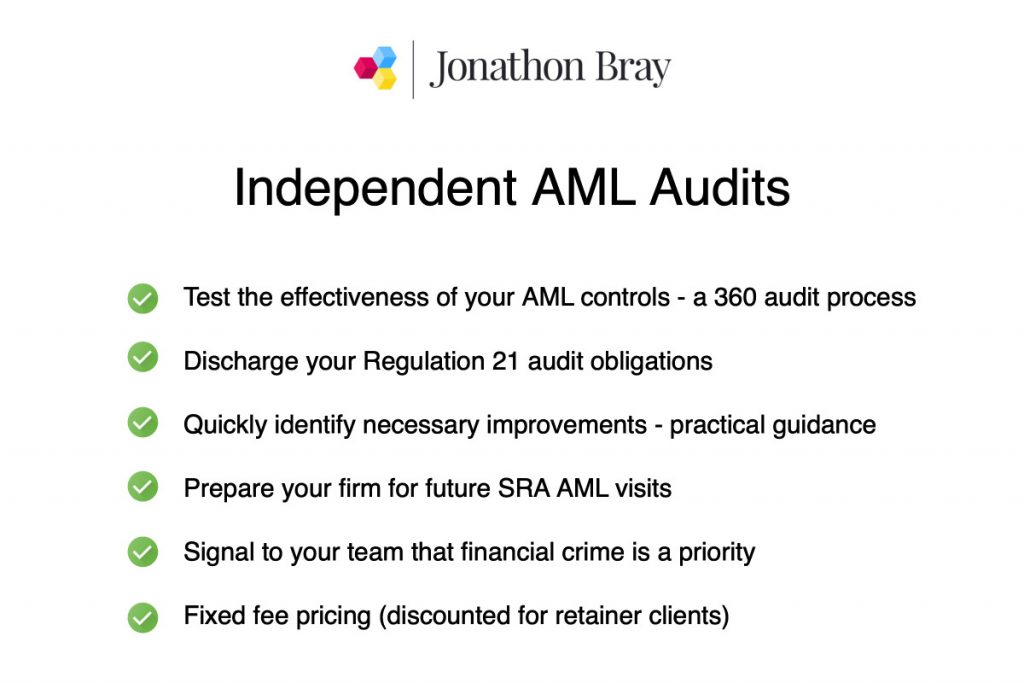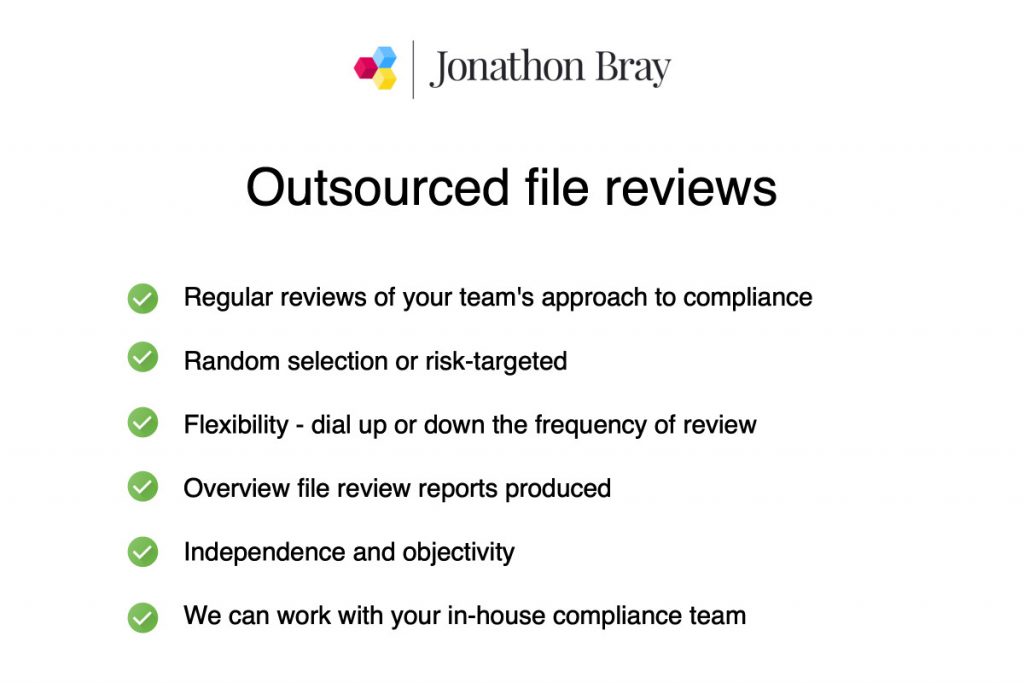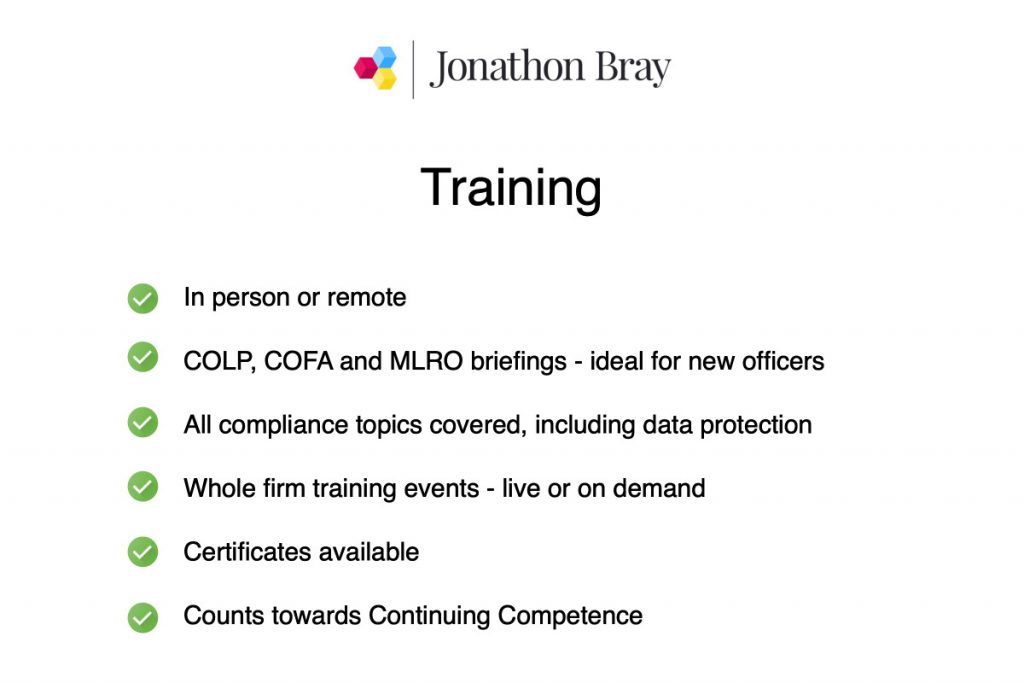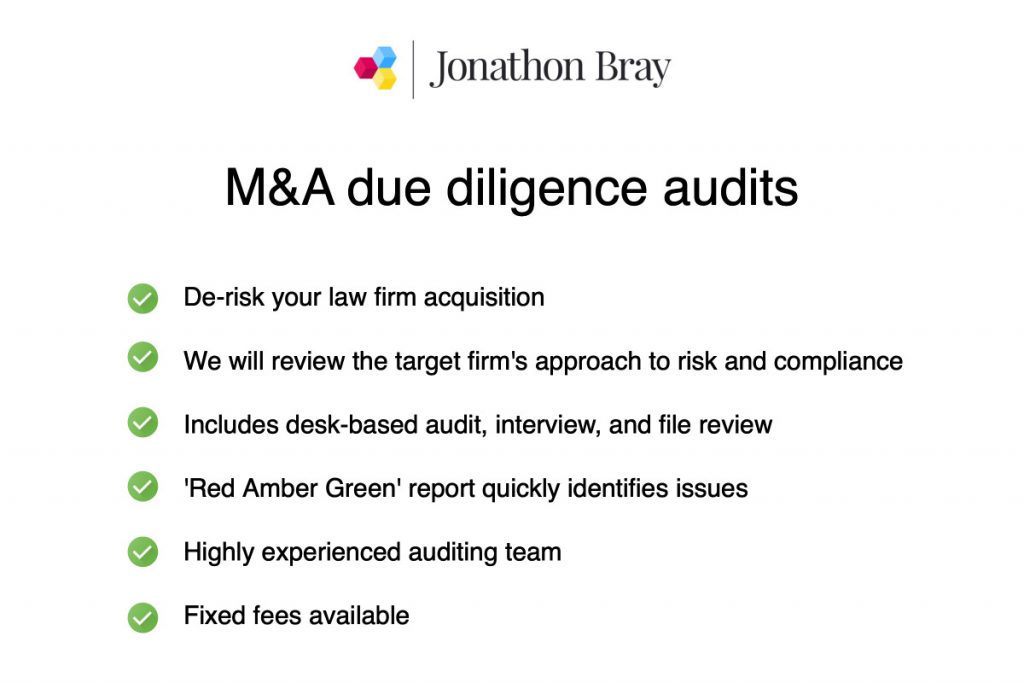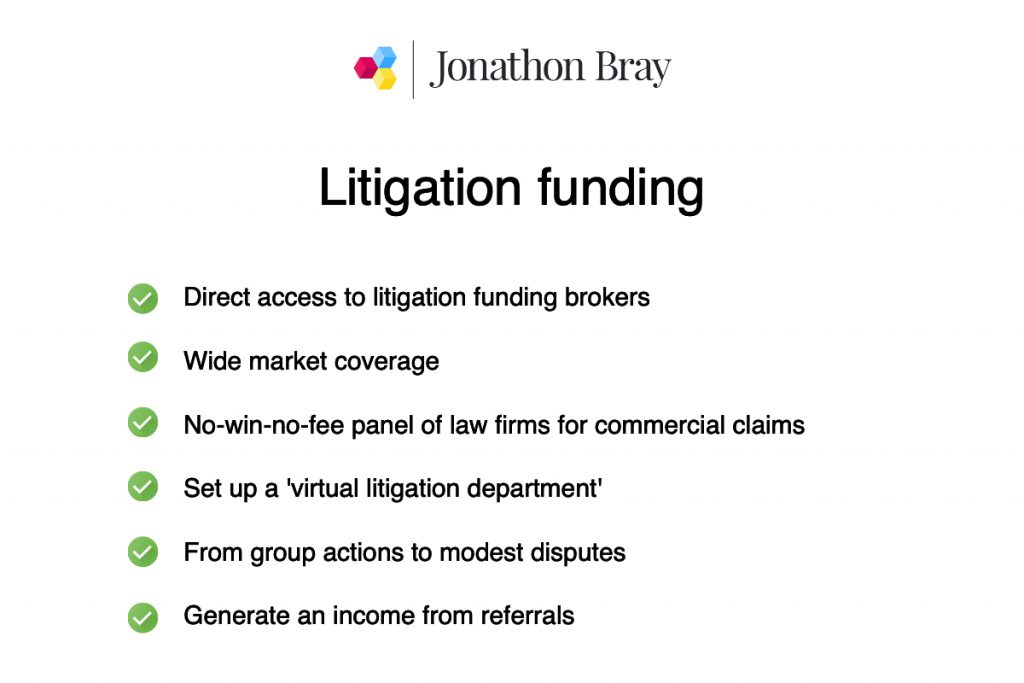Effective complaints handling for solicitors (Top Tips)
Complaints management is unfortunately a critical aspect of legal practice. Solicitors and law firms must navigate complaints with skill and care. It is an area that the SRA takes seriously, so understanding how to manage minor grievances and serious complaints effectively is vital for maintaining client trust, keeping the regulator at bay and ensuring you get paid.
Lessons learned: £100K fine for law firm’s AML compliance failures
Ashfords LLP, a prominent regional law firm, was recently fined over £100,000 by the Solicitors Regulation Authority (SRA) due to failures in complying with anti-money laundering (AML) regulations.
The regulatory sanction – one of the biggest fines ever handed out by the SRA – was for lapses in dealing with potential money laundering risks in three property transactions. Two of these transactions may have involved a sanctioned entity, although there were no suggestions that the firm had helped to facilitate any financial crime.
Enforcement action for AML-related breaches are increasingly common, which reflects the SRA’s strategy for prioritising its duties as a ‘supervisory authority’ under the Money Laundering Regulations. Most of the fines issued by the regulator are relatively minor, although they are trending upwards. Other notable fines include:
- Mishcon De Reya LLP – £232,500 fine for several breaches relating to AML rules. The firm admitted to failing to conduct adequate due diligence on a number of clients.
- Ferguson Bricknell – £20,000 fine for failing to have AML training and systems in place.
Read the full article for the reasons and lessons learned.
ICYMI: Understanding Lexcel Accreditation: An Introduction for Law Firms
Are you considering Lexcel accreditation for your law firm? Wondering about its benefits and how it can elevate your practice?
Join us as we delve into the world of Lexcel with insights from John Edwards of Recognising Excellence. In this comprehensive guide, we’ll explore the advantages, the assessment process, and the latest updates to the Lexcel standard, providing you with everything you need to know about this prestigious accreditation.
ICYMI: Insurance Distribution: A Summary Of The Rules For Law Firms
Insurance distribution is a regulated financial service. Solicitors involved in insurance distribution activities need to adhere to specific rules and regulations set by the SRA and FCA.
What is ‘insurance distribution’?
Insurance distribution refers to a range of activities that include advising on, proposing, or carrying out work preparatory to the conclusion of contracts of insurance, concluding such contracts, or assisting in the administration and performance of these contracts, especially in the event of a claim.
This definition encompasses a broad spectrum of actions, from the initial advice and proposal phase to the finalisation and ongoing administration of insurance policies.
Law firms engaged in personal injury, conveyancing, and probate are likely to be involved in insurance distribution activities. This includes arranging clients’ insurance in personal injury matters or insurance for defective title in conveyancing matters.
News and Guidance

SRA Updates
- Statement: Axiom Ince intervention – SRA Compensation Fund update – The SRA has made a significant decision regarding the handling of claims against the Compensation Fund arising from the intervention into Axiom Ince. Notably, the regulator has chosen not to impose an overall cap on claims.
The rules of the Compensation Fund allow for a discretionary cap of £5 million on claims arising from an intervention, primarily as a measure to protect the fund’s solvency. In the case of Axiom Ince, the SRA says that applying a cap would result in substantial consumer loss and could severely undermine public confidence in solicitors.The SRA will prioritise claims to ensure the most pressing cases, such as those involving domestic conveyancing, are addressed first. This method is aimed at managing the fund’s short-term solvency and preventing significant detriment to consumers.
It has also been decided that, for the time being, solicitors will not have to make an in-year contribution to the fund. However, this decision will be kept under review in light of further interventions or unexpected events.
The Law Society has expressed support for this decision, emphasising the need for consultation with the profession before any future decisions on exceptional compensation questions, as members would bear the cost.
As of now, the SRA has received claims totalling approximately £33 million, which is in excess of the Compensation Fund’s reserves. Claims against the firm’s professional indemnity insurance are in progress, and there is a freezing order on relevant assets.
The SRA has made a limited number of emergency claim payouts, based on strict criteria such as risk of homelessness, imminent insolvency, or contractual obligations for domestic property purchases.
Separately, the Legal Services Board (LSB) has told MPs on the justice committee that it considers the SRA to be the ‘most sophisticated, mature, best-resourced and arguably most effective regulator in our sector’.
That message of support precedes an anticipated LSB independent review of the SRA’s handling of the Axiom Ince affair.
Law Society Updates
- Guide: Anti-money laundering guidance for the legal sector: addendum – The Law Society’s official AML guidance has been updated with an addendum (subject to HM Treasury approval), providing key information on changes in legislation and observations on best practices. This includes details on the Economic Crime Levy, discrepancy reporting, the register of overseas entities, and the Economic Crime and Corporate Transparency Act 2023. It also covers company due diligence, the ‘de minimis’ exception, mixed-property transactions, supply chain risk, and guidance on source of funds and client due diligence.
- Tools: High-risk third countries for AML purposes – The latest update to the Money Laundering Regulations 2017, effective from December 2023, adds Bulgaria, Cameroon, Croatia, Nigeria, South Africa, and Vietnam to the list, while removing Albania, the Cayman Islands, Jordan, and Panama. The page emphasises the importance of Enhanced Due Diligence (EDD) for any business relationship with entities in these countries. As ever, be aware that a jurisdiction’s absence from the official list does not imply ‘low risk’.
- Feature: The challenges regulating in-house lawyers – This article discusses the unique regulatory challenges faced by in-house lawyers. It highlights issues such as maintaining independence, managing conflicts of interest, and navigating the nuances of in-house legal practice. The piece provides examples of these challenges and offers guidance on compliance with regulatory duties for in-house lawyers.
- Insight: Annual statistics report 2022: what does the solicitor profession look like? – The Law Society’s Annual Statistics Report provides a detailed profile of the solicitor profession as of July 2022, highlighting key trends and changes. The report notes a 3.3% increase in the number of solicitors on the roll and a 2% increase in practising certificate holders. The profession is becoming more diverse, with 53% of practitioners being female and 18.4% from Black, Asian, or minority ethnic backgrounds. There’s also a shift towards alternative career paths and in-house work, with over a quarter of solicitors now in-house. The report identifies an overall 3% decrease in private practice firms.
- Gazette: Judgment Days – This important Gazette feature discusses the increasing regulatory powers of the SRA, raising concerns about its potential to act as investigator, prosecutor, judge, and jury in disciplinary matters. It highlights the SRA’s request for additional fining powers and the implications for the Solicitors Disciplinary Tribunal (SDT). The article also explores the impact of these changes on legal professionals, the balance of power between the SRA and SDT, and broader issues of fairness and transparency in legal regulation.
- [Updated] Practice note: Rejecting un-remunerative publicly funded criminal work
- [Updated] Practice note: Fiduciary roles and retirement or departure from practice by a private client practitioner
Other Updates
- LSCP: Consumer protection held back by titles such as ‘solicitor’, says watchdog – the Legal Services Consumer Panel tells MPs that the current ‘antiquated’ system of regulation forces consumers to navigate a ‘labyrinthine maze’.
- LeO: Legal Ombudsman address to change in January – From 22 January 2024, the LeO is changing its correspondence address to: Legal Ombudsman, PO Box 6167, Slough, SL1 0EH. You will need to update any material where you currently cite this information (e.g. complaints policy, website, client letters, etc.).
- National Crime Agency:
Free webinars and recordings

Next session: Unraveling the latest SRA Accounts Rules changes, and identifying client money risks and opportunities
Date & Time: Wednesday 13th December 2023 at 12:00 PM
We’re thrilled to collaborate with Shieldpay, industry pioneers in Third Party Managed Accounts, for an in-depth exploration of the evolving landscape of client account management.
What You’ll Learn:
1. In-depth Analysis of Current Risks: Understand the complexities and pitfalls in holding client money.
2. Emerging Opportunities: How to leverage the rules to your firm’s advantage.
3. Third Party Managed Accounts Explained: A comprehensive look into why this might be the strategic shift your practice needs.
4. SRA Updates & Cases 2023: Stay ahead with the latest SRA rule changes and landmark cases impacting solicitors.
Join us for a valuable session filled with insights, followed by an interactive Q&A where your most pressing questions will be answered.
Secure your spot here – we look forward to seeing you.
Recording: Peeling back the layers on Source of Funds: Knowing when to go deeper
In an era where AML compliance has become more critical than ever, a recent webinar hosted by Thirdfort provided invaluable insights. This event, which saw several hundred legal professionals in attendance, was presented by Harriet Holmes, Jonathon Bray, and Rachael Eyre. Their discussion shed light on the intricate aspects of Source of Funds (SoF) compliance, a subject of paramount importance to solicitors.
Topics discussed in the webinar:
- Deep Dive into Regulatory Expectations: a comprehensive analysis of the expectations set by regulatory bodies regarding Money Laundering Regulations (MLRs). The speakers emphasised the necessity for law firms to not only integrate SoF checks into their standard procedures but also to grasp the nuanced requirements of these regulations. Understanding the distinction between routine and high-risk transactions and tailoring due diligence processes accordingly was highlighted.
- Special Focus on High-Net-Worth Individuals and Politically Exposed Persons: a significant portion of the discussion was dedicated to the complexities associated with high-net-worth individuals and Politically Exposed Persons (PEPs). The speakers discussed the importance of a risk-based approach, advocating for heightened diligence and deeper investigation in cases involving these individuals. Specific strategies for verifying the sources of wealth and funds were discussed, along with the legal implications of failing to do so.
- Spotlight on gifts: this is always a particularly challenging area. The webinar delved into various scenarios solicitors might encounter, from straightforward family gifts to more complex situations involving non-family members. The discussion underscored the importance of context in assessing the risk and the need for a proportional response in investigation depth.
- Challenges with Overseas Buyers: handling transactions involving overseas buyers was discussed at length. The speakers outlined the additional measures required in these cases, including not just the authentication of documents but also an understanding of the legal and financial systems of other countries. The importance of clear communication with clients regarding the potential delays and costs associated with AML enquiries for overseas transactions was also emphasised.
- Practical Compliance Strategies: The webinar concluded with actionable tips for legal practitioners. Emphasis was placed on integrating SoF checks into the routine due diligence process. The use of technology, like open banking, was advocated as a means to streamline these processes, making them more efficient and less intrusive for clients.
Additional resource: The bank of Mum and Dad is low-risk, or is it?
Training resource: On-demand webinar archive
Contact us for access to our extensive back catalogue of recorded webinars, available from just £49 + VAT. Topics include:
- Financial crime: LSAG, firm-wide risk assessments, client due diligence etc.
- Sanctions
- Use of client account as a banking facility
- Data protection
- Financial stability
- Conflicts and confidentiality
- SRA Transparency Rules
- Accounts Rules
- Employee Ownership Trusts (EOTs)
- Register of overseas entities
- Sexual misconduct and solicitors’ private lives
- Terrorist financing
- And more….
We also produce bespoke training webinars and live workshops for your team.
SRA and SDT disciplinary decisions

- Jake Flint – senior manager (non-lawyer) banned from the profession after admitting to inappropriately touching a colleague.
- Justin King Law Ltd – £750 fine for failing to publish probate costs and complaints information on the firm’s website.
- A-Z Law Solicitors Limited – another firm fined £750 for Transparency Rules failures.
- Alison Evans – solicitor fined £9,074.80 for acting in a conflict situation when advising both developer and private investor in a property development transaction. The investor lost £150,000 when the development failed.
- Peter Vialls – rebuked for putting forward a claim which was not ‘properly arguable’.
- Ashfords LLP – firm fined £101,357 for historic AML failures, having reported itself to the regulator. No actual financial crime was found to have occurred in the three conveyancing transactions at the centre of the case.
- Angel Wilkins LLP – firm fined £7,900 for having neither a compliant AML firm-wide risk assessment in place, nor PCPs (policies, procedures and controls).
What we do – contact us for a chat
